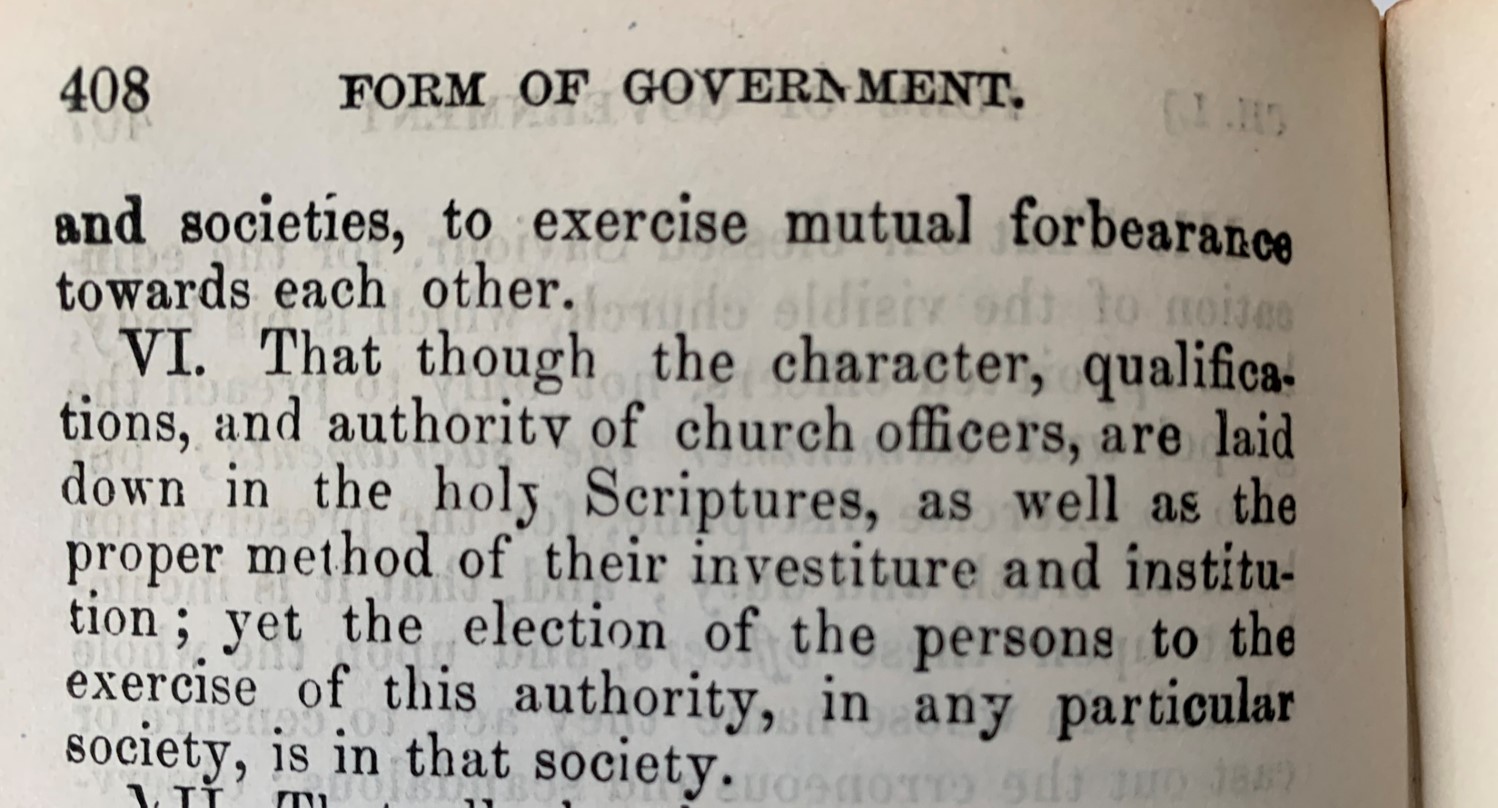Shall we allow democrats in the church?
That is, is democracy appropriate for the church? Presbyterians have been cautious but early in saying yes.
Following talk radio host Rush Limbaugh’s death last month, a Christianity Today podcast dealt with questions of Limbaugh’s influence and impact on Christian radio. I found it fascinating, much more so than I anticipated. Limbaugh’s influence especially on media directed at American Evangelicals was huge. A genre of Christian talk radio, as with so many other forms of talk radio, evolved in the wake of Limbaugh’s success.
I don’t listen to any talk radio (or many podcasts), but those who do say that Christian talk radio has produced its own brash Rush wannabes and also expanded access to some good Christian thinkers and commentators.
I’ve been thinking about something one of the guests on the podcast said. Quoting another writer, she said talk radio has made the discussion of issues in the church more democratic. That seems like a good thing, doesn’t it? But, really, shall we allow democrats in the church?
The photo in the header of this post is from an 1833 Book of Presbyterian Church Order. Whichever Presbyterian acronym you prefer – EPC, PCUSA, OPC, PCA, ARP, RP, and many more – each of the denominations they represent will have similar wording. “The election of persons to the exercise of this authority (bearing church office), in any particular society, is that society.”
In its chapter on Rights Reserved to a Local Church, our EPC Book of Order says, “The local church has the right to elect its own officers.”
Presbyterian churches, like most Reformed churches, have been full of democrats from the beginning. We’ve never much liked hierarchy (as much as we sometimes love bureaucracy). Electing our own leaders has been a guard against the abuses of intrenched hierarchies. Bishops can’t send us a new pastor as reward or punishment (to congregation or pastor). Elders can’t appoint their own successors. All in all, Presbyterian democrats have proven to be a good thing.
Our elected leaders not only approve budgets, hire staff, and plan potlucks, they help us clarify what we believe. But we’re very cautious about such a democratic process. John Calvin writes about councils of elected leaders, Sessions and General Assemblies, in the case of Presbyterians, meeting to guide the church in knowing what it believes and how to live that belief. He says that when an issue of doctrine or faith is to be decided, it is best if the leaders “of the church in common, invoking Christ’s Spirit, agree, (for it) will have much more weight than if each one, having conceived it separately at home, should teach it to the people, or if a few private individuals should compose it.” Elected leaders are to “deliberate in common what they ought to teach and in what form, lest diversity breed offense.”
Winston Churchill was not a Presbyterian, but Presbyterians understand well his thoughts on democracy, “Indeed it has been said that democracy is the worst form of Government except for all those other forms that have been tried from time to time.”
So, carefully, cautiously, Presbyterians allow, in fact, welcome, democrats into the church. But when the democrats become populists, the church must say no, sorry, you’re not welcome.
As a political movement populism is often defined as an ideology that argues for the will and aspirations of (good) common people against the interests of an (evil) elite that governs in its own interests. Populism claims to be democratic but is majority-rulism often at the expense of minority populations or convictions. Claiming to be democrats, populists too easily become despots as Christians in Pakistan, Muslims in India, and, yes, still too many minority groups in the United States, testify.
Populism in the church rejects creeds, commentaries, and the work of councils as elitist. “Don’t confuse us with theology,” the populists say as they tune their radios and their screens to the purveyors of prosperity preaching, nationalist nonsense, and emotional excess.
Populism is nothing new in the church. Paul warned his young friend Timothy that “the time is coming when people will not endure sound teaching, but having itching ears they will accumulate for themselves teachers to suit their own passions, and will turn away from listening to the truth and wander off into myths.” (2 Timothy 4:3–4, ESV).
Shall we allow democrats in the church? Yes. But beware the itchy-eared populists and their podcasts, radio shows, and YouTube channels.
Saint Andrew friends: I am teaching this class again this Sunday. This week we continue in Chapter 6. – Spiritual Warfare. Join us Sunday at 9:00 a.m.


